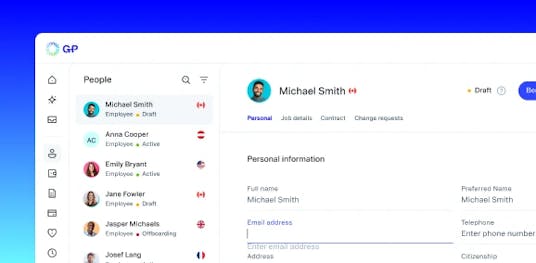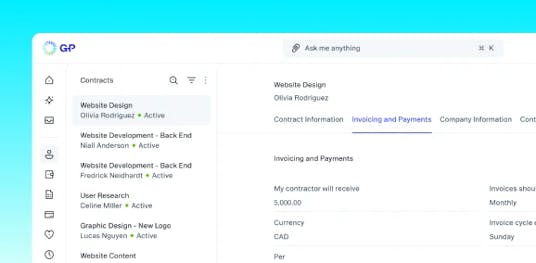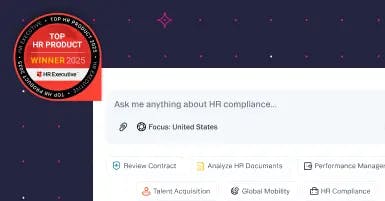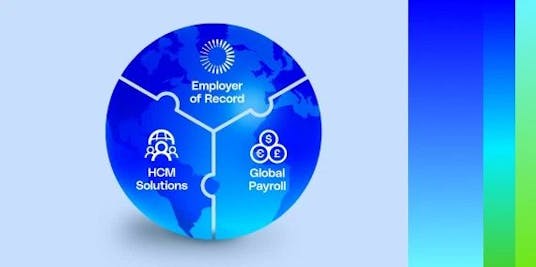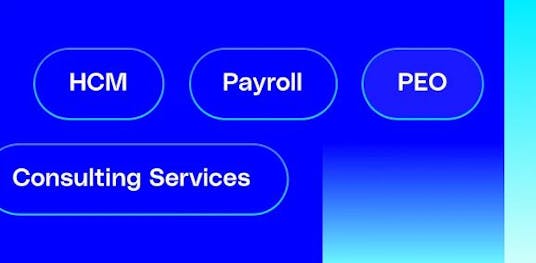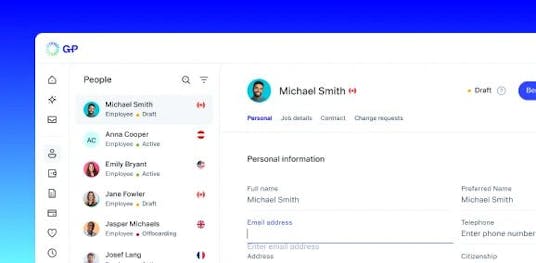The Netherlands’ central location in Europe and infrastructure like the Port of Rotterdam and Schiphol Airport make it the perfect entry point for companies looking to access the EU market. The Dutch talent pool ranks high in digital skills across Europe. And over 90% of the population speaks English fluently.
Before expanding into the Netherlands, you’ll need to understand contracts, taxes, wages, benefits, and other employment laws. Our guide will tell you everything you need to know about hiring in the Netherlands.
What to know before hiring in the Netherlands

If you’re expanding your business into the Netherlands for the first time, there are important legal requirements to be aware of. These norms and laws influence hiring practices in the Netherlands and many aspects of the employer-employee relationship, including compensation and benefits.
G-P Gia™, our AI-powered global HR agent, can answer your toughest compliance questions across 50 countries — including the Netherlands — and all 50 U.S. states. Reduce your reliance on outside counsel and cut the time and cost of compliance by up to 95% with Gia.
Here are five things to know about hiring in the Netherlands.
1. Collective Labor Agreements (CAOs)
Collective Labor Agreements (Collectieve Arbeidsovereenkomst, CAO) establish wages, working hours, overtime, holidays, notice periods, pensions, and other employment terms. They can provide more favorable terms than statutory minimums, such as higher wages, extra leave, or better benefits. The Dutch Ministry of Social Affairs and Employment can declare a CAO “generally binding.” This means it applies to everyone in the sector, regardless of union membership.
CAOs cover around 80% of employees in the Netherlands. If you’re expanding to the Netherlands, check the applicable CAO for your sector.
2. Working time
Dutch law doesn’t have a nationally standardized workweek. CAOs or employment contracts set the standard. Most CAOs and employers define full-time work as 36, 38, or 40 hours per week.
The Netherlands has a high rate of part-time employment. Part-time arrangements are protected by law. Under the Dutch Working Hours Act (Arbeidstijdenwet), employees can’t work more than 12 hours per shift or 60+ hours per week. Over a four-week period, the average can’t exceed 55 hours per week. Over a 16-week period, the average can’t exceed 48 hours per week.
Employees get at least 11 consecutive hours of rest every 24 hours. They’re also entitled to at least 36 straight hours of rest per week. CAOs can set extra restrictions on working time.
3. Time off policies
Employees get a minimum of four times their weekly working hours as paid annual leave per year. So employees working 40 hours per week get at least 20 days of paid vacation. Many CAOs provide more generous leave entitlements. Unused statutory leave expires six months after the end of the calendar year.
The Netherlands has 11 national holidays including New Year’s Day, King’s Day, and Christmas. There’s no statutory obligation to pay employees for public holidays. CAOs can specify otherwise.
Employees are entitled to up to two years of paid sick leave. Employers have to pay at least 70% of the employee’s salary during this period. Many CAOs require a higher percentage, especially in the first year of illness.
Pregnant employees get at least 16 weeks of paid maternity leave. Partners get one week of paid leave, and up to five weeks of extra partially paid partner leave. Parental leave allows each parent to take up to 26 times their weekly working hours in unpaid leave until the child turns eight. Nine weeks are paid at up to 70% of the daily wage, subject to a cap.
4. Compensation
The Netherlands has a legally mandated minimum wage that’s updated every January and July. It’s EUR 14.40 for employees aged 21 and over (July 2025). Lower rates apply for younger workers.
CAOs can set minimum salary scales, annual increases, and extra allowances or benefits that exceed statutory minimums. You have to comply with the applicable CAO for your sector or industry. Dutch law doesn’t mandate overtime pay, but most CAOs do.
Many employees get a holiday allowance of at least 8% of their gross annual salary. This is usually paid in May or June.
5. Taxes and social insurances
The Netherlands uses a progressive income tax system. Income is structured into three brackets:
-
Up to EUR 38,441 is taxed at 35.82%
-
Between EUR 38,442 and EUR 76,817 is taxed at 37.48%
-
Above EUR 76,817 is taxed at 49.50%
Wage tax and national insurance contributions are included in these rates for most employees.
Social security in the Netherlands is divided into national insurance and employee insurance. Everyone pays for national insurance, which goes toward old age pension, survivor benefits, and long-term care. The national insurance contribution is 35.82%.
Only employers pay for employee insurance. It covers unemployment insurance, disability insurance, sickness benefits, and childcare allowance. Unemployment insurance is taxed at 2.74% for permanent contracts and 7.74% for flexible contracts. Disability insurance ranges between 6.28—7.64%, depending on the sector. Sickness benefits and childcare allowance are both taxed at 0.50%. These contributions are subject to annual income caps.
All employees get basic health insurance. Employers pay a contribution of 6.52% on salaries up to EUR 75,860. Employees pay monthly premiums to insurers.
Many sectors require participation in a collective pension scheme. Employers and employees share contributions. These are set by CAOs. They can add 10–20% to the total employment cost.
Top hiring hubs in the Netherlands
Some cities in the Netherlands are known for particular industries. Knowing what each city has to offer allows you to focus your hiring efforts in the right place and fill roles faster.
The top talent hubs in the Netherlands are:
-
Amsterdam is the capital and largest city. The city is sometimes called Silicon Canal and is the main hiring destination for business and tech in the country. Netflix and Tesla have their European headquarters here.
-
Rotterdam is known for having the largest port in Europe. The city has a skilled talent pool for logistics, shipping, trade, and industrial sectors. It has a growing presence in tech and innovation too.
-
The Hague (Den Haag) is the seat of the Dutch government. The Hague is a hiring destination for legal, governmental, non-profit, and international relations roles.
-
Utrecht is located in the center of the Netherlands. It’s a major hiring destination for education, healthcare, and business services. The city has a strong student and young professional population.
-
Eindhoven is known for its high-tech and engineering industries. The city is the center of the Brainport region. This area is home to 5,000 IT and tech companies.
Key industries in the Netherlands
Understanding the Netherlands’ main industries allows you to benchmark salaries and benefits. You can use this insight to make smart choices about where to invest and grow your workforce.
The main industries in the Netherlands include:
-
Technology and high-tech manufacturing: The country is a global leader in design and production of semiconductors, sensors, and robotics. Specialist talent includes mechanical, electrical, and systems engineers, software developers, researchers, and product developers.
-
Agriculture and food processing: The Netherlands is one of the world’s largest exporters of agricultural products, mainly flowers, vegetables, dairy, and processed foods. Specialist talent includes agronomists, food scientists, and biotechnology professionals.
-
Logistics and transportation: With the port of Rotterdam and Schiphol airport, the Netherlands is a major logistics and distribution hub for Europe. The country is a top player in global trade. Specialist talent includes experts in supply chain management, logistics operations, and transportation planning.
-
Financial services: Amsterdam is a big center for banking, insurance, fintech, and international finance. Fintech is supported by a strong financial infrastructure and government policies. Specialist talent includes risk management and compliance specialists, fintech experts, and business control professionals.
-
Chemicals: The sector is known for developing solutions in areas like healthcare, energy, and food security. Specialist talent includes quality control specialists, biocides and speciality chemical experts, and chemical engineers.
The cost of hiring an employee in the Netherlands

Whether you’re hiring one employee or an entire team in the Netherlands, expenses are inevitable. Budget for the following:
-
Setting up an entity (unless you partner with an employer of record)
-
Advertising job positions
-
Paying referral bonuses to employees with connections in the Netherlands
-
Paying an in-house hiring committee
-
Traveling to and from the Netherlands, including hotel stays, meals, and transportation
-
Partnering with a translator to draft documents or facilitate conversations (if applicable)
-
Using a background check service for screening candidates
-
Drafting compliant employment contracts, legal review, and consultation with HR and legal experts
-
Costs for providing computers, phones, and software licenses
-
Onboarding materials and initial training
-
Costs for maintaining required tax and payroll records and documentation
According to G-P Verified sources from Gia, the employer burden rate in the Netherlands, which includes costs triggered on top of salaries, ranges from 18–25%, excluding accident insurance, which can vary.
What does a company need to do to hire employees in the Netherlands?
Make sure you cover these essentials before expanding your team in the Netherlands:
-
Notarize your company’s Articles of Association.
-
Register with the Netherlands Chamber of Commerce (KVK).
-
Register with the Dutch Tax Administration.
-
Register as a withholding agent.
-
Open a local bank account and deposit the required capital.
-
Conduct a risk inventory and evaluation.
-
Verify each employee’s identity and legal right to work in the Netherlands.
-
Set up a payroll system to calculate and withhold wage tax, social security, and other statutory contributions.
-
Register employees for social security.
-
Notify authorities and maintain records.
Setting up a subsidiary in the Netherlands can take weeks or months. Use G-P EOR to hire full-time employees in the Netherlands without setting up your own entity. Build your team at a lower cost and with peace of mind that you’re doing so compliantly.
The steps to hiring in the Netherlands

The hiring process in the Netherlands is similar to the one you’re likely familiar with in your own country. The hiring process follows five basic steps: advertising the job, evaluating applications, interviewing candidates, sending job offers, and onboarding new employees.
1. Advertise job vacancies
Clearly outline the job description, responsibilities, and qualifications. Make sure job advertisements comply with antidiscrimination laws.
Your job postings should include:
-
The job title and main duties
-
Required qualifications and competencies
-
Terms of employment (e.g., contract duration, working hours, salary or salary range)
-
Application instructions and deadlines
-
Contact details for questions
Job advertisements can be published in Dutch or English, depending on the target audience. Indeed, LinkedIn, Nationale Vacaturebank, Monsterboard, Jobbird, and Werk are popular job sites in the Netherlands.
2. Evaluate applications
Gather CVs and application forms. Screen candidates based on qualifications and experience, ensuring compliance with privacy and antidiscrimination regulations. For jobs that require a confidential security clearance, candidates undergo a security screening from the General Intelligence and Security Service (AIVD).
3. Interview candidates
Interview candidates who made it onto your shortlist. You can do these interviews in person or virtually. Use structured, nondiscriminatory interview questions. Gia can help you create questions that follow antidiscrimination laws in the Netherlands, so you can find the best fit for the role while complying with local regulations.
4. Make job offers
Contact your chosen candidate to offer them a position with your company. Make sure the offer is compliant with Dutch labor law, including minimum wage and statutory benefits. Contracts can be in any language as long as both parties understand the content.
5. Onboard new employees
Now you can onboard new employees. Register the new employee with the Dutch Tax Authority and, if applicable, the pension fund. Register the employee for social security and health insurance. Maintain accurate personnel records in accordance with Dutch data protection (GDPR) requirements.
If you’re working with an EOR like G-P, you won’t have to worry about the administrative burden of onboarding. We’ll streamline the process, so you can focus on training your new hire and integrating them into your company culture.
Hiring contractors in the Netherlands
Working with independent contractors in the Netherlands can be a cost-effective way to test the market and build a presence without the commitment of full-time employees. Contractors based in the Netherlands understand local consumer behavior, rules, and business practices. They’ll be ready to start working quickly with their own equipment and established work processes.
Hiring contractors allows you to easily adjust your workforce based on your business needs, without the complexities and costs of employment.
Before you enter an agreement with an independent contractor in the Netherlands, consider the following:
1. Employees vs. independent contractors
It’s important to understand the difference between employees and independent contractors. In the Netherlands, employers hire employees to do work and, in return, pay them a regular salary and benefits. Independent contractors provide services. Unlike employees, contractors set their schedules, use their own equipment, and work on specific projects, rather than having an ongoing role.
2. Penalties for misclassification
Classifying someone as a contractor when they’re not can lead to severe penalties. If misclassification occurs, you’ll have to:
-
Pay back taxes for the period of misclassification.
-
Pay back all due benefits such as paid leave, social security, and pension contributions.
-
Face litigation and court judgements.
3. How to pay contractors in the Netherlands
G-P Contractor™ takes away the messy, time-consuming process of hiring and paying international contractors. You can create and issue contracts and pay contractors with just a few clicks, all while ensuring a compliant process.
Hire employees and contractors in the Netherlands with G-P
Our SaaS and AI-powered products – EOR, Contractor, and Gia – support companies as they build and manage global teams.
G-P is the recognized leader in global employment with more than a decade of experience; the largest team of HR, legal, and compliance experts; and a global proprietary knowledge base.
Make your expansion to the Netherlands easier with G-P. Contact us or book a demo today.
